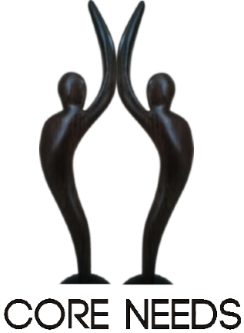WHY DO WE HAVE TO ‘CREATE’ A ‘NATURAL’ STATE OF BEING?
If you’ve ever had a conversation with an older person, you may have been given a glimpse of the answer. The stories you will have heard may be along the lines of… while times were very tough, money was tight, there were big families to feed and shelter often in small houses with few of the facilities we now have, they were nonetheless largely happier. If you lived in the country, there was more hard, physical work, often outdoors on farms, with neighbours helping each other out and the door permanently open for the drop in cup of tea or the music session at the weekend or meeting up at the crossroads to cycle to the dance some miles away.
For the most part, their day to day lives involved close connection, neighbourliness, music, the outdoors, physical activity, baking, sewing, or whatever other craftwork was needed to meet basic needs. What was once a natural part of everyday life is now something we have learned we need to orchestrate, to provide balance and grounding and support mental wellbeing, in order to counter the effects of modern day living.
Most are now consciously burning off mental stress through active exercise and outdoor pursuits or supporting wellbeing through daily activities such as meditation, mindfulness, journalling, spending time in nature and with animals, listening to music, creative and craft activities of all sorts, all with the common thread of arriving at a place that facilitates inner calm, a focus on nothing other than the task in hand as opposed to the stream of thoughts in the mind, the to-do-lists, the worry lists, the what-if’s.
We know that connection is crucial to people’s sense of wellbeing. This was a strong feature of lifestyles of the past, possibly too much so some would argue, when you had half a dozen kids sometimes sharing not just the same room, but often the same bed!
Isolation as we know from the past few years of Covid lockdowns created havoc mentally for people, and indeed even still on an everyday basis for those who are or feel alone by virtue of circumstances. We all have an innate need to be part of a ‘pack’ or community for safety, but also to feel a sense of belonging and identity.
But we also need connection with ourselves, and when we don’t have this, spending time alone can be very challenging.
At its core, I believe that is what we are ultimately trying to achieve through the many and varied wellness tools and activities that are growing daily, to re/connect with ourselves. There is the obvious impact of social media detaching us from reality, minimising real human interaction and providing a false basis for endless comparison of life and looks, which in itself, generates a feeling of lack and separation.
But I believe it goes even deeper than that. Many are no longer comfortable when left to spend time with just themselves, with nothing to do, no opportunity to distract through busyness of all sorts. When this occurs, as it did for many over the past few years, people are left wondering what their purpose is, when they are not doing. This is where the ‘being’ versus ‘doing’ debate kicks in and few of us actually know the difference.
Many clients I work with are dissatisfied with some aspect of life or work and have hit the point where they want to make changes, but don’t know where to begin. I usually begin digging deep to get to know who they really are as a starting point. This is often the most challenging part for clients as they can’t remember, they have lost touch with themselves. But if you don’t know who you are and what brings you joy, or makes you miserable, how can you ‘become’ happy, how can you design your life to make ‘you’ happy? It is, as Eckhart Tolle says, the deeper ‘I’ that has that answer.
Many of today’s wellness tools and activities help people
start this process of getting comfortable spending time with just themselves. As they begin to experience a bit of space or separation from
all the busyness and distraction, they may even begin to recognise or remember
who they are underneath all of that, those bits of themselves last seen in
childhood!
Some find that as they go deeper than their typical daily routine allowed in the past, they begin to feel more grounded, more connected and less upended and buffeted about by external events, happenings or people, subject to the whim of their particular world on any given day and all that entails. They begin to feel less fearful, like they are taking back some control over their lives, they can respond rather than react, life becomes a bit more easeful and flows better, the way nature intended it…
Breda Stewart
Core Needs Coaching
You’re always making choices … even when standing still
Email: stewartbreda243@gmail.com
Phone: 087 7436254
Web: www.coreneeds.ie
